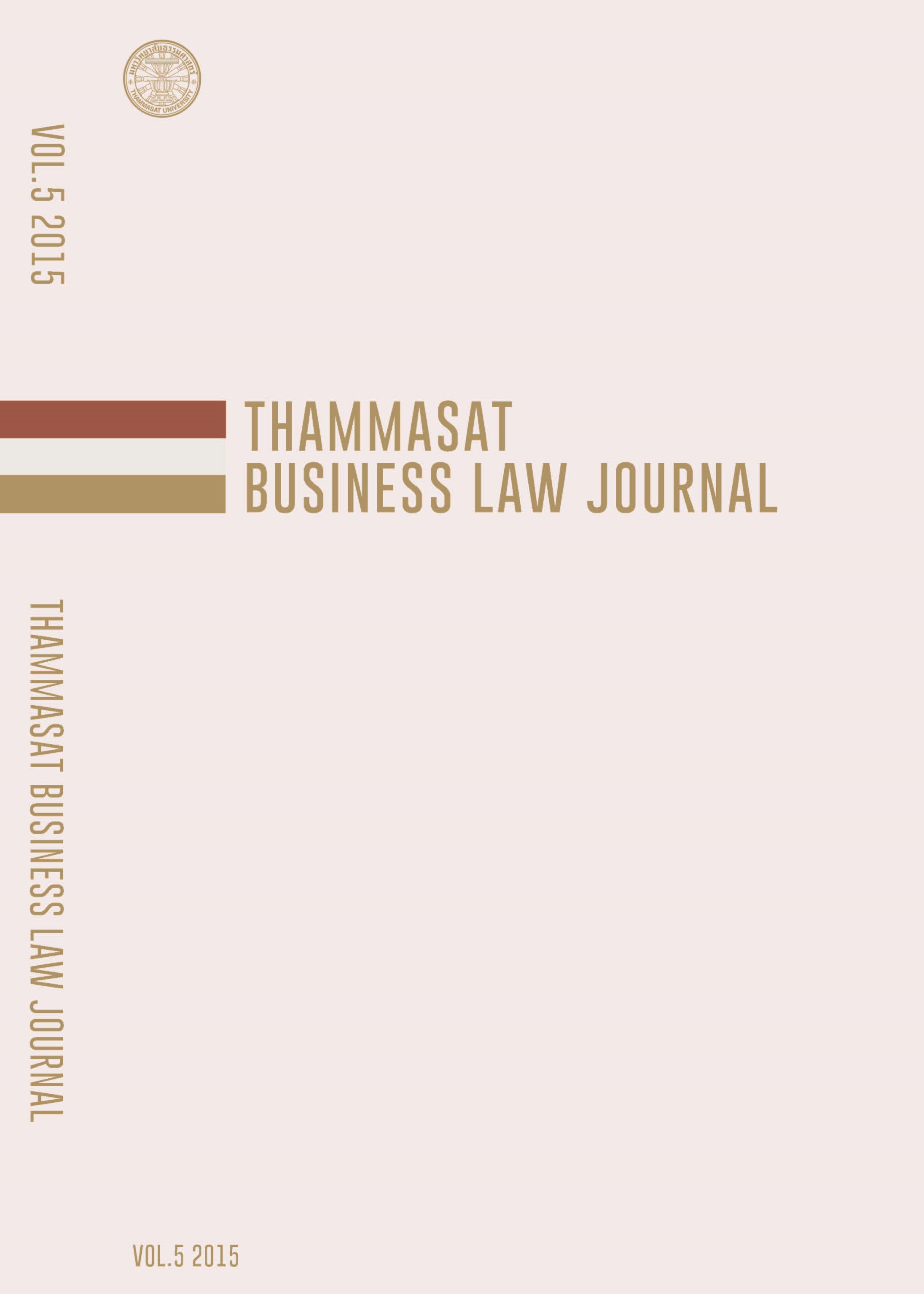PROTECTION OF MOBILE APPLICATION USERS’ PERSONAL DATA
Main Article Content
Abstract
At present, mobile apps become an important part of many people’s lives. A study conducted in 2014 by twenty-six worldwide data protection authorities showed that there are three major data protection problems in the mobile app context. First, the mobile apps appear to request excessive access to personal data. Second, there is no notice about data protection policies that mobile app users could read before downloading such mobile apps. Third, mobile app users have no real control over their personal data.
Although Thailand has also been confronted by mobile app data protection problems, the existing laws are insufficient to govern such problems. Moreover, there have been attempts to pass personal data protection bills intended to deal with the data protection problems. However, if either of the bills were enacted, there would still be shortcomings causing mobile app data protection problems to remain unresolved.
This thesis aims to study on the problems of Thai law on mobile app data protection, analyze and compare to foreign legislations, namely Canada, the United States of America, and the European Union. In conclusion, this thesis proposes that a specific law providing mobile app developers’ liabilities should be enacted and a specific authority handling data protection complaints should be established in order to govern the mobile app data protection problems.
Article Details
References
กรุงเทพมหานคร: โปรวิชั่น, 2553 (Paiboon Amornpinyokiat. The Explanations on
Computer Crime Act B.E.2550. 1st ed. Bangkok: Provision, 2011.)
Asay, Clark D. “Consumer Information Privacy and the Problem(s) of Third-Party
Disclosures.” Northwestern Journal of Technology & Intellectual Property 11 (2013): 321-356.
Bray, Oliver. “The App Effect: How Apps Are Changing the Legal Landscape.”
Computer and Telecommunications Law Review 19(2) (2013): 66-70.
Maxwell, Kelsey. “Online Behavioral Advertising: The Pros and Cons of Regulation
and Suggestions for Adherence to California’s Constitutional Right to Privacy.” Nexus: Chapman’s Journal Law & Policy 19 (2013-2014): 51-76.
จักรินทร์ โกเมศ. “ค่าเสียหายสำหรับความเสียหายทางจิตใจตามกฎหมายลักษณะละเมิด.”
วิทยานิพนธ์ปริญญามหาบัณฑิต, คณะนิติศาสตร์ มหาวิทยาลัยธรรมศาสตร์, 2554. (Jukarin
Komase. Damages for Mental Injury under Law of Torts. Master’s thesis,
Thammasat University, Law, 2011.)
Article 29 Data Protection Working Party. “Opinion 02/2013 on apps on smart
devices.”,
Forsheit, Tanya. “Is There a Pravicy Policy for that App?”,
Office of the Privacy Commissioner of Canada. “Results of the 2014 Global Privacy
Enforcement Network Sweep.”,
Opassiriwit, Chungtong. “The Problem and Present Situation of Privacy Rights in the
Digital in Thailand.”,
Privacy Rights Clearinghouse. “California’s “Shine the Light Law.” goes into effect
Jan. 1, 2005.”,
State of California Department of Justice: Office of the Attorney General. “Protecting
Consumers.”,


